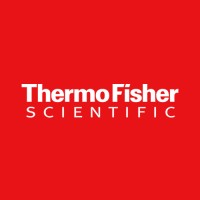CD43 / PE / W3/13
Product Details
| Description | CD43 Monoclonal Antibody (W3/13), PE | |
|---|---|---|
| Conjugate | PE | |
| Clone | W3/13 | |
| Target Species | Rat | |
| Applications | FC | |
| Supplier | Thermo Fisher Scientific | |
| Catalog # | Sign in to view product details, citations, and spectra | |
| Size | ||
| Price | ||
| Antigen | ||
| Host | ||
| Isotype |
About CD43
This gene encodes a highly sialylated glycoprotein that functions in antigen-specific activation of T cells, and is found on the surface of thymocytes, T lymphocytes, monocytes, granulocytes, and some B lymphocytes. It contains a mucin-like extracellular domain, a transmembrane region and a carboxy-terminal intracellular region. The extracellular domain has a high proportion of serine and threonine residues, allowing extensive O-glycosylation, and has one potential N-glycosylation site, while the carboxy-terminal region has potential phosphorylation sites that may mediate transduction of activation signals. Different glycoforms of this protein have been described. In stimulated immune cells, proteolytic cleavage of the extracellular domain occurs in some cell types, releasing a soluble extracellular fragment. Defects in expression of this gene are associated with Wiskott-Aldrich syndrome. [provided by RefSeq, Sep 2017]
This gene encodes a highly sialylated glycoprotein that functions in antigen-specific activation of T cells, and is found on the surface of thymocytes, T lymphocytes, monocytes, granulocytes, and some B lymphocytes. It contains a mucin-like extracellular domain, a transmembrane region and a carboxy-terminal intracellular region. The extracellular domain has a high proportion of serine and threonine residues, allowing extensive O-glycosylation, and has one potential N-glycosylation site, while the carboxy-terminal region has potential phosphorylation sites that may mediate transduction of activation signals. Different glycoforms of this protein have been described. In stimulated immune cells, proteolytic cleavage of the extracellular domain occurs in some cell types, releasing a soluble extracellular fragment. Defects in expression of this gene are associated with Wiskott-Aldrich syndrome. [provided by RefSeq, Sep 2017]
About PE
Phycoerythrin (PE, R-PE) is a red-emitting fluorescent protein-chromophore complex that can be excited the 488-nm blue, 532-nm green, or 561-nm yellow-green laser with increasing efficiency and captured with a 586/14 nm bandpass filter. PE has an excitation peak at 565 nm and an emission peak at 578 nm. PE is 240kD in size and has an extinction coefficient of ~2x10^6 which makes it one of the brightest fluorophores available and a potent donor upon which to build tandem fluorophores with longer Stoke's Shifts.
Phycoerythrin (PE, R-PE) is a red-emitting fluorescent protein-chromophore complex that can be excited the 488-nm blue, 532-nm green, or 561-nm yellow-green laser with increasing efficiency and captured with a 586/14 nm bandpass filter. PE has an excitation peak at 565 nm and an emission peak at 578 nm. PE is 240kD in size and has an extinction coefficient of ~2x10^6 which makes it one of the brightest fluorophores available and a potent donor upon which to build tandem fluorophores with longer Stoke's Shifts.
Experiment Design Tools
Panel Builders
Looking to design a Microscopy or Flow Cytometry experiment?
Validation References
Reviews & Ratings
| Reviews |
|---|
Looking for more options?
1722 CD43 antibodies from over 44 suppliers available with over 94 conjugates.





